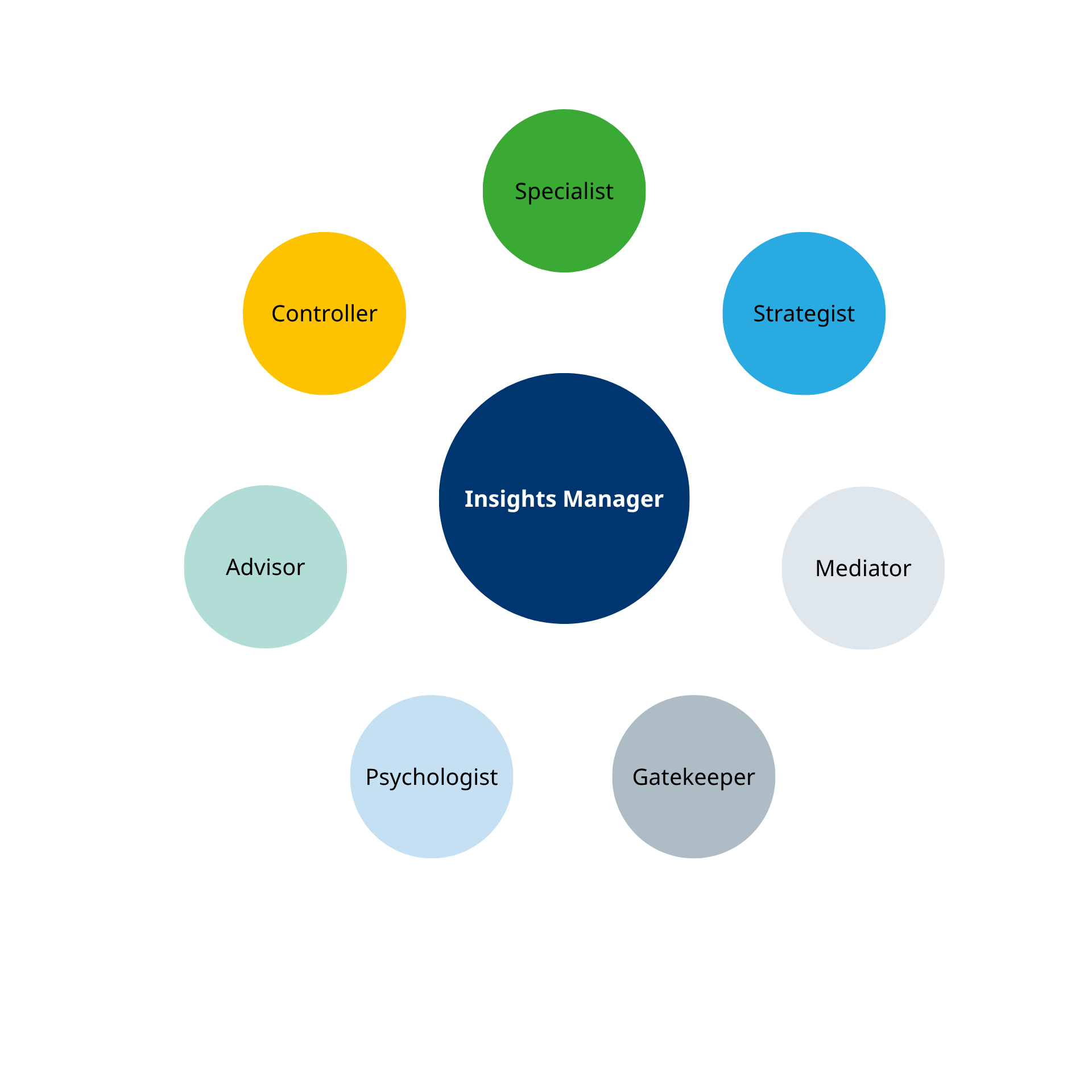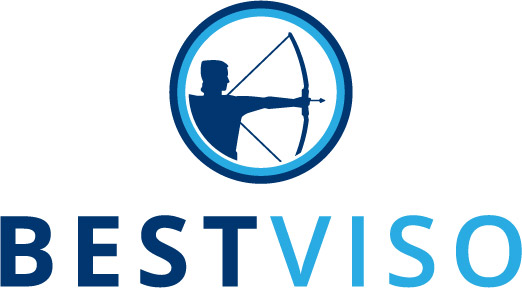Insights Managers provide valid information about the market and customers, thereby creating an important foundation for decisions. They therefore have an important function within the company. However, how strongly they are actually involved in strategic decisions and their implementation often depends on the respective understanding of their role.
For this, it is crucial to know one’s own roles precisely: Are they controllers, advisors, mediators, or initiators of strategic developments? Most of the time, Insights Managers are all of these at once. This makes it all the more important that they and their internal partners and clients recognize, name, and purposefully use these roles.
In this blog, we highlight the diversity of these roles and help Insights Managers become aware of this variety. We also clarify the expectations that internal clients have of these roles.
Insights Manager as Business Partners with Real Added Value
Do leaders need insights, or is intuition enough? Of course, intuition plays a role – especially for experienced leaders. But in dynamic markets, where customer behavior, technological developments, and competitive environments are constantly changing, gut feeling alone is no longer enough. Insights Managers complement intuition with evidence and provide context, relevance, and orientation. Especially when different interests collide or risks are high, their insights create clarity – and secure decisions before they turn into costly hypotheses.
Today, Insights Managers must not only be experts – they need to position themselves as business partners with real added value. This means they have to work professionally while simultaneously building and maintaining strong relationships.
Insights Managers are not just information providers but active co-creators of business decisions. As business partners, they bring not only data but also consumer logic and market perspective – and thereby make an important contribution to recognizing opportunities, minimizing risks, and purposefully aligning strategies.
Their added value arises above all where they collaborate on equal footing with marketing, product development, or management – as translators between the world of customers and the company’s goals – and are able to take on different roles depending on the situation.
The Roles of the Insights Manager
The term “Insights Manager” is today a common synonym in many companies for the “corporate market researcher.” Together with terms like “Market Intelligence” or “Customer Insight,” it describes a function that goes far beyond classic data collection: it is about providing relevant market and customer information, preparing decisions, and strategically supporting internal stakeholders—such as in marketing, sales, or product development [2].
Below, we take a look at a selection of different roles that shape this position.

- Specialist brings expertise in market research, statistics, and project management. Responsible for conducting high-quality market research and generating relevant insights.
- Controller continuously monitors market conditions, customer needs, competitor activities, etc. (e.g., through tracking studies). Supports management in evaluating company performance against defined goals and benchmarks.
- Strategist anticipates developments and trends. Helps develop long-term strategic plans based on market research insights.
- Advisor accompanies management in interpreting market data and developing strategies and actions. Provides well-founded recommendations based on solid insights.
- Mediator translates complex market contexts into understandable language for different departments. Acts as a bridge between divisions and stakeholders, ensuring a shared understanding of customer and market logic.
- Psychologist comes into play when there are negative or unexpected results that do not meet management’s expectations. In this role, the market researcher must proceed empathetically and tactfully to present results—without assigning blame or shifting responsibility. Provides psychological support and helps management understand impacts and develop constructive solutions.
- Gatekeeper decides which high-quality and relevant information and insights should be passed on to management.
As an Insights Manager, become aware of these roles. Ask yourself which role you feel most comfortable in. Because these influence your communication and how you deal with your internal clients. By inquiring about internal expectations, you can address them more purposefully and flexibly slip into one role or another depending on the goal.
3 Tips for Insights Managers Who Want to Achieve More
Additionally, the following three tips will help you work more efficiently in your daily tasks as an Insights Manager:
- Make use of existing knowledge. In many companies, valuable data and studies are lying dormant—they simply need to be made more accessible. When existing knowledge is well structured, you save time, reduce costs, and quickly deliver relevant insights. Smart knowledge management with clear categorization is the key to this.
- Standardize processes. Recurring projects like pre-tests or taste tests can be handled more efficiently through uniform KPIs, fixed samples, and standardized reports. This creates clear workflows, enables automation—and fosters better collaboration.
- Automate reports. Reporting does not have to be time-consuming. With automated analyses and smart exception detection, you gain more space for strategic work. Modern BI systems with AI and language processing additionally help you prepare data in a clear and fast way—for well-founded decisions at the push of a button.
Beyond that, Insights Managers gain more persuasive power when they do not merely describe the results of market research studies. They should be presented in terms of their practical value for strategies. Together with internal stakeholders, concrete actions should be derived directly afterward.
Conclusion
In summary, Insights Managers do not just provide valid data—they create the foundations for decisions that have a lasting impact on companies. Yet their contribution does not end with analysis—it begins there. The more actively we are involved in strategic discussions and in implementing insights, the greater our influence on market success.
Insights Managers who are aware of their competencies and roles, and who think entrepreneurially about the values and needs of their internal clients, contribute more strongly to ensuring that their value is recognized.
Companies that rely on the expertise of Insights Managers are not only better prepared but can also respond to challenges more quickly and purposefully.
Interested in strengthening your position as an insight manager in your company? Find out more about BESTVISO management coaching here.
Sources:
- Koornstra, S. (2018). How can insights managers achieve cheaper, faster and more impactful research?. Research World, 2018(71), 53-58.
- Ottawa, M. & Winkler, R. (2018). Kompetenzen für die Marktforschung: Was Marktforscher zukunftssicher macht. Walter de Gruyter GmbH & Co Oldenbourg.

